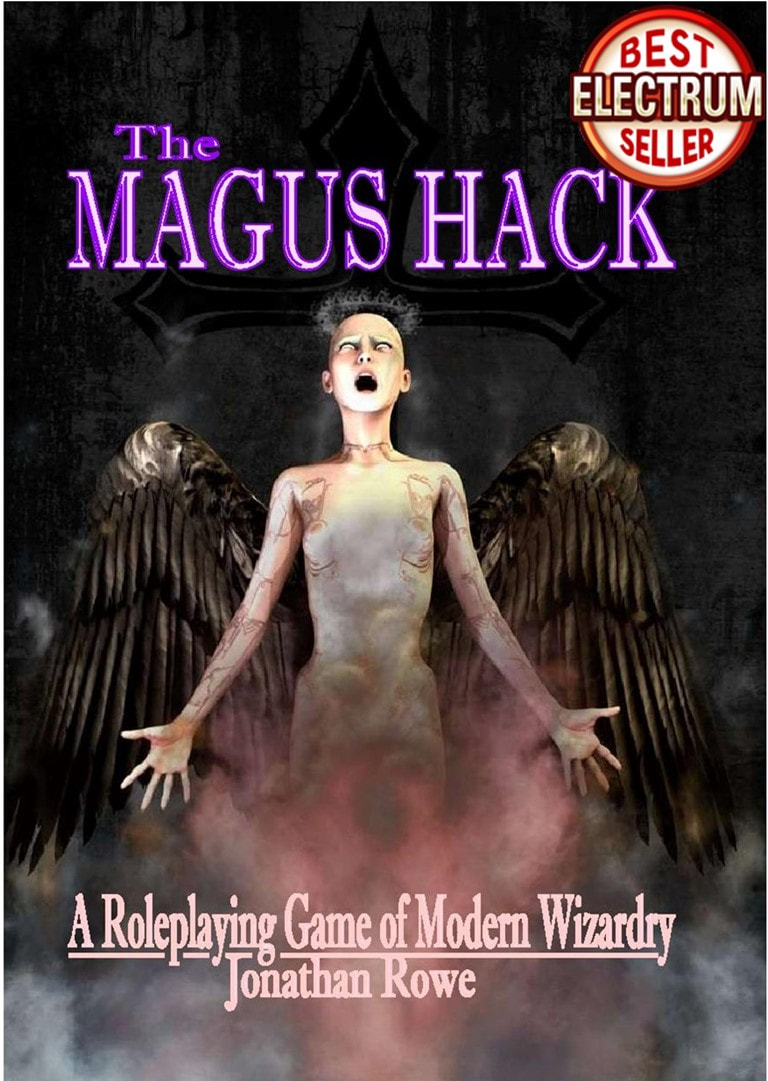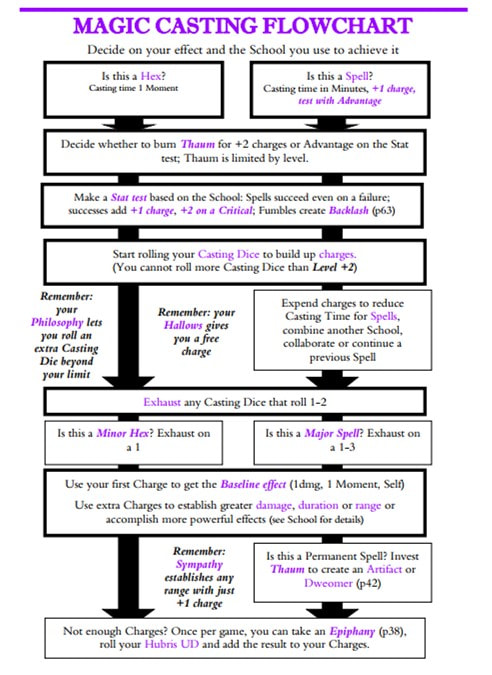The power is yours now.
You have studied. You have trained. They called you a dreamer, a misfit, a fool.
But now the universe answers to your commands.
Take up your Hallows and go forth. Your Philosophy is irresistible. The Spirits will flee your approach, the Heavens and Hells will tremble..
But there's a problem.
Your Hubris grows. Your Egoism swells. The power is to great for mortals to control.
Will the Magic master you - or will you master the Magic?
You have studied. You have trained. They called you a dreamer, a misfit, a fool.
But now the universe answers to your commands.
Take up your Hallows and go forth. Your Philosophy is irresistible. The Spirits will flee your approach, the Heavens and Hells will tremble..
But there's a problem.
Your Hubris grows. Your Egoism swells. The power is to great for mortals to control.
Will the Magic master you - or will you master the Magic?
|
Welcome to The Magus Hack, a new take on the '90s games that let you roleplay the wizard in a modern setting!
In The Magus Hack you will find:
|
The Magus Hack uses the OSR-themed rules engine developed in David Black's The Black Hack, which adds the innovation of usage dice rather than tracking points: whenever you call on a resource, you roll that resource's die and on a 1-2 it exhausts, getting smaller, with d8s turning into d6s and d6s turning into d4s and when d4s exhaust, well, you're not going to be using that resource any more.
|
The magic system involves building up enough 'charges' to pay for the effects you want - say, damage or range or duration or a couple of other factors. You build up these charges by rolling one of your casting dice. Since these are usage dice, they exhaust on a 1-2, so the more you roll them, the smaller they get, eventually winking out of the game. Plus, you are limited to rolling your Level+2 casting dice for any effect. But there are loads of ways round that particular restriction. Like picking up free charges when using your thematic instruments (your 'Hallows') or breaking the limit of Level+2 when working magic inside your occult Philosophy or plenty of other things.
There are the rules you'd expect for passing your magic of as ordinary coincidences (cryptic magic) as opposed to amazing violations of the laws of nature (outrageous magic). There are rules for permanent Dweomers, sympathetic links using True Names and longwinded Spells versus quick'n'dirty Hexes.
The other novel mechanic is Hubris - your Magus' out-of-control egoism - represented by a little d4 usage die that gets bigger and bigger when you roll it and it comes up 1-2. Highly hubristic Magi find it difficult interacting with mortals, lose the ability to do cryptic magic and eventually get expelled from Earth to a dimension of their own.
Hubris can be called upon to boost your own magic, but at the risk of growing even more out-of-control. |
Hubris is linked to the Nemesis Die, which is rolled to see if the bad guys notice you working magic. Highly hubristic Magi stand out more; they attract the attention of powerful enemies. Hubris also defines the consequences of Backlash from fumbled magic, making the retribution less likely but more deadly, escalating from birthing malevolent imps from your unconscious mind to dramatic explosions and dimension warping
There are nine Nemeses suggested, with stat blocks for their minions and bosses, so Magi can confront the Machine Messiah's Terminator-style robots, the Nameless Cult's Lovecraftian abominations, the Fae Crusade's elven invasion or other 'Big Bads' that sit up and notice when PCs are careless with their magic. A descending Nemesis Die is rolled when the players get into trouble and summons the Nemesis with lethal force if it fully exhausts itself.



